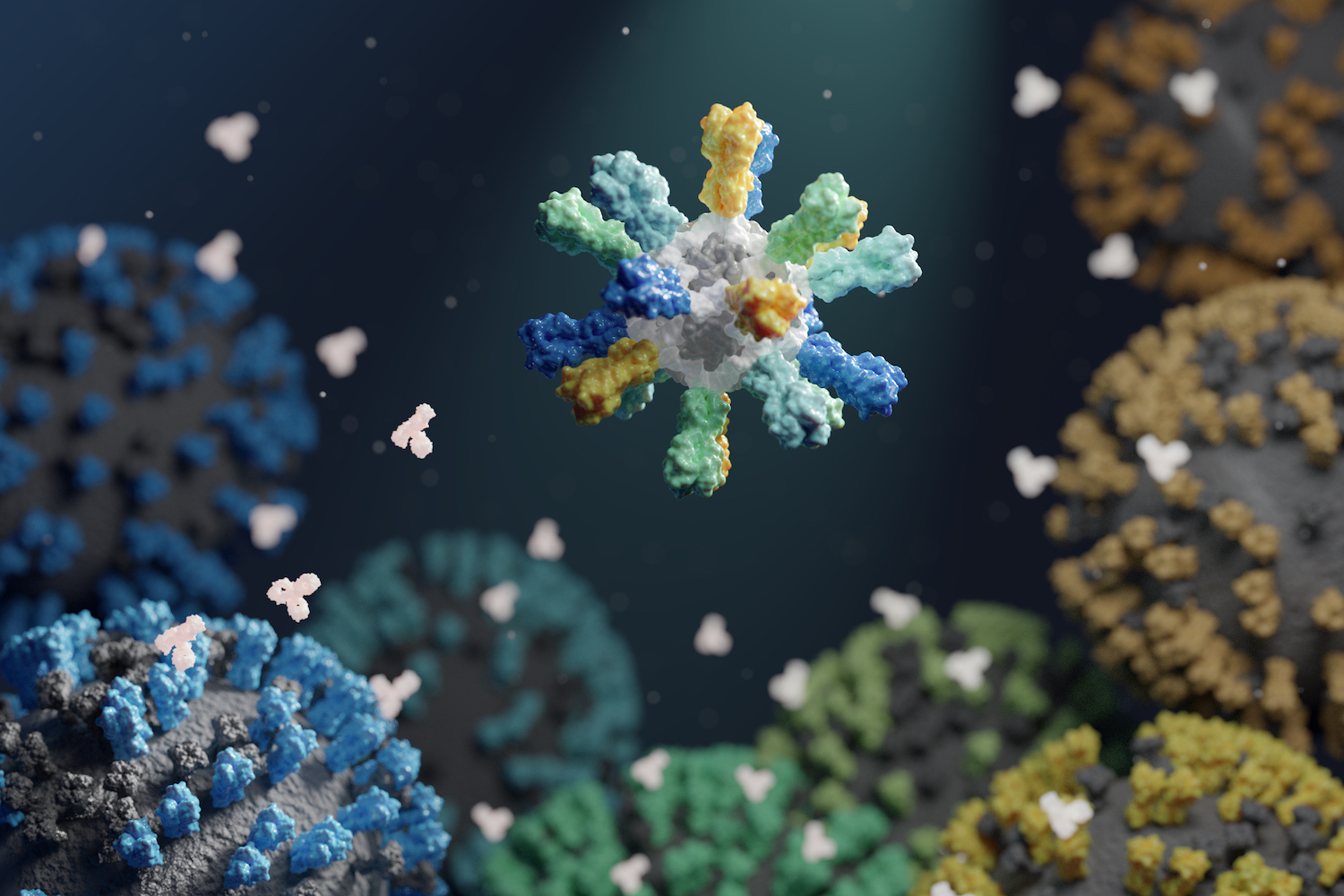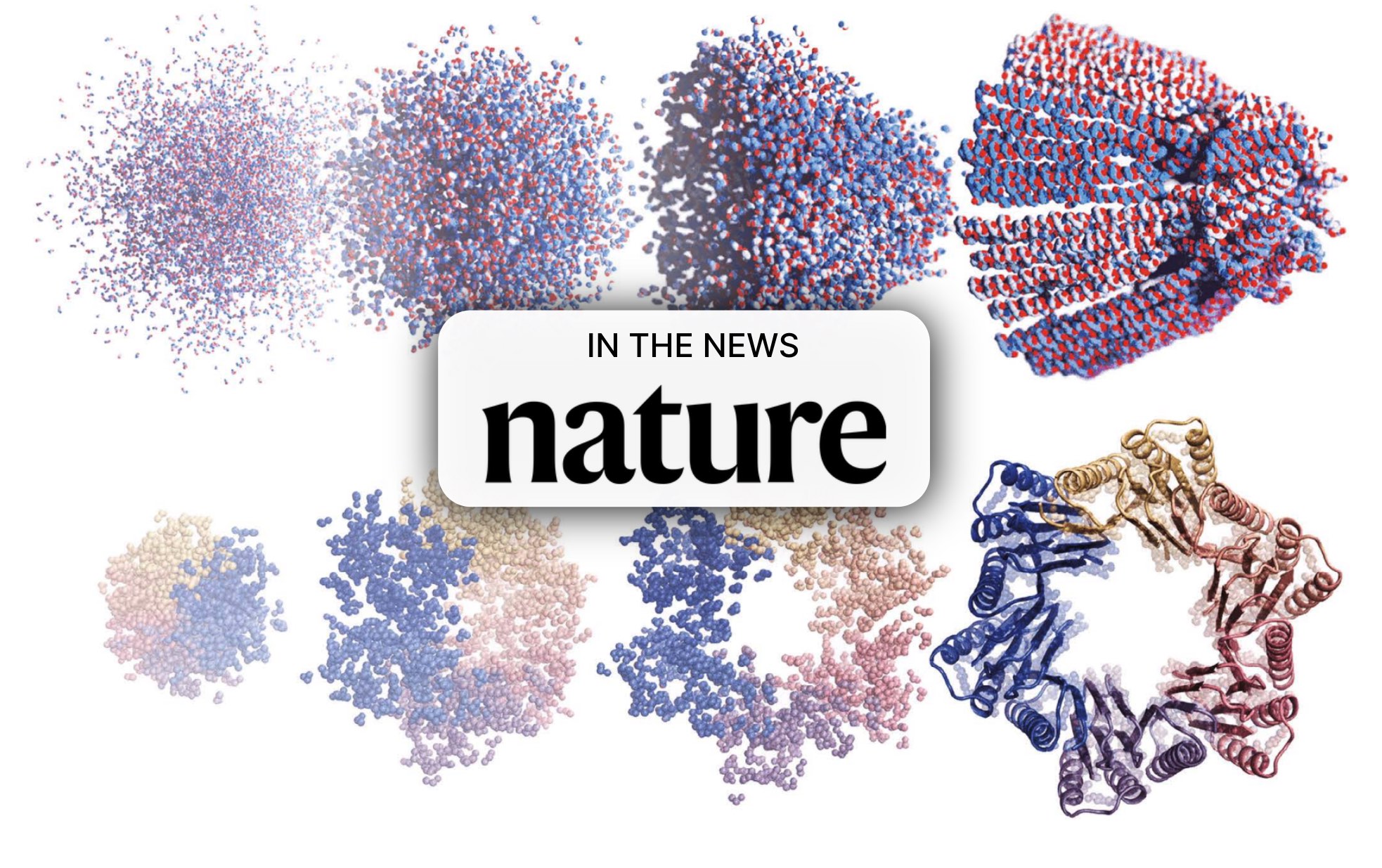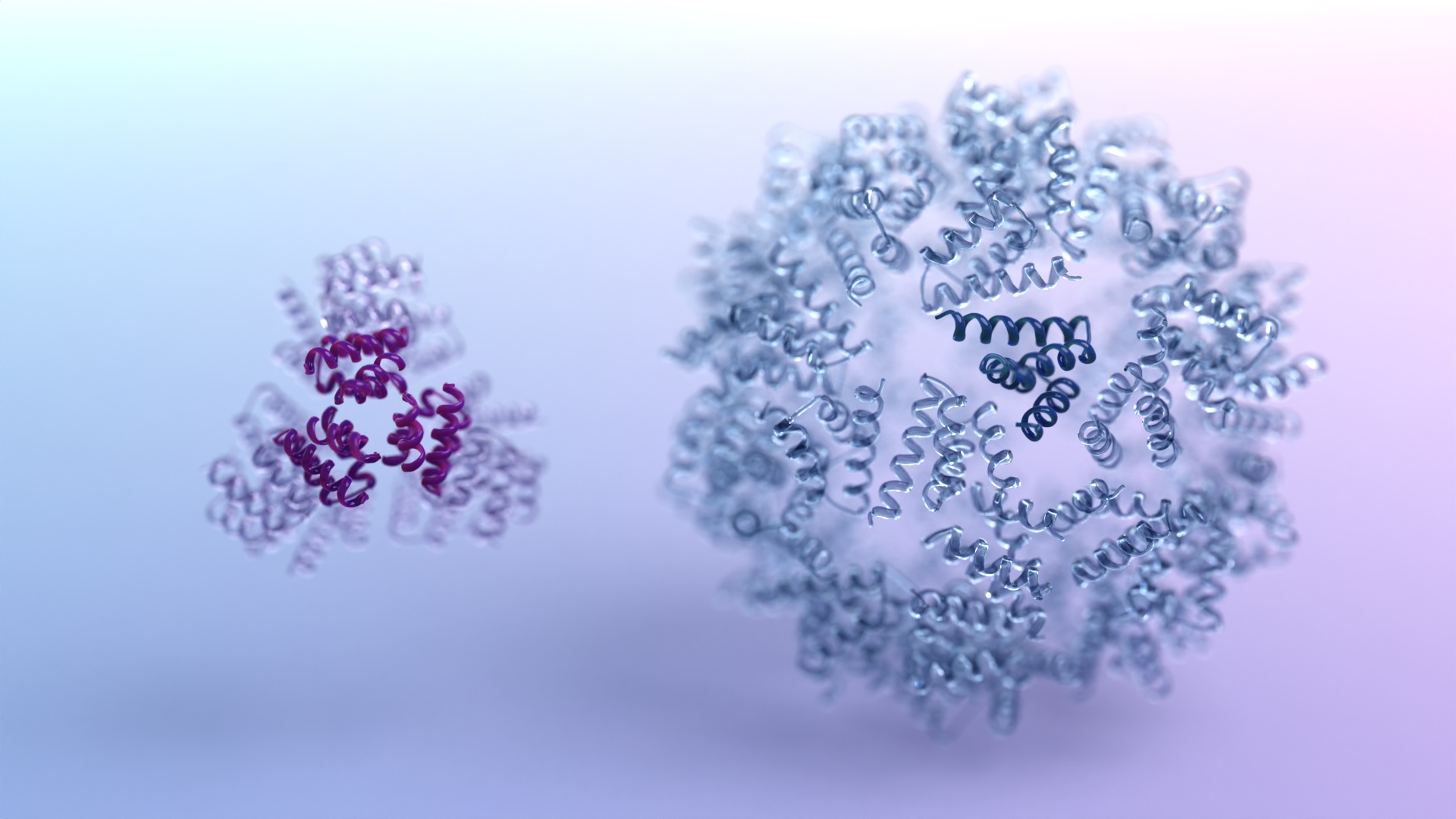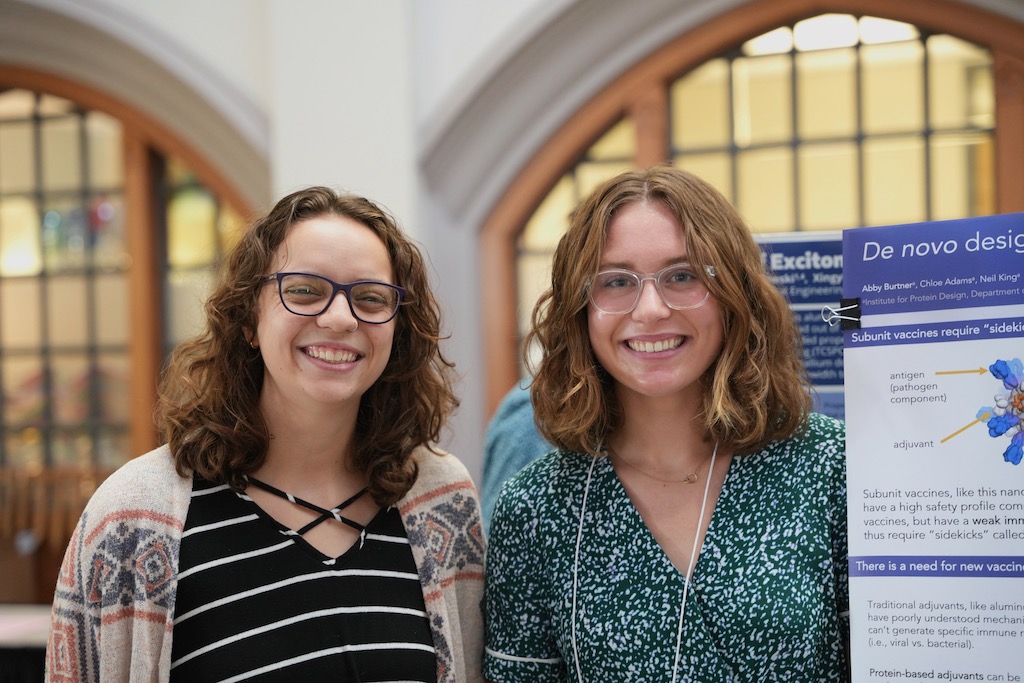Latest posts
-
High schoolers try protein design at UW’s Summer STEM Camp
Several members of our Institute recently spent a day with 60 high school students as part of the UW’s STEM camp at W.F. West High School in Chehalis, Washington. Our goal was simple: we wanted to show students that science is more than just a subject in school—it’s a fascinating…
-
NIH highlights the King Lab’s universal flu vaccine research
In a quest to thwart future pandemics, the King Lab has made significant strides toward the development of universal vaccines, as recently noted by the National Institutes of Health. Traditional vaccines—while crucial—only target certain strains of a given disease. Universal vaccines, on the other hand, are meant to train the…
-
Nature: “AI tools are designing entirely new proteins that could transform medicine”
RFdiffusion was published in Nature this week. The journal reports on how it and other generative algorithms are being used to create custom biomolecules in seconds.
-
David Baker receives Frontiers of Knowledge Award in Spain
From the BBVA Foundation: From El Mundo: Vaccines against the coronavirus or malaria, drugs against cancer without side effects… With artificial intelligence as an ally, the biochemist from the University of Washington, winner of the Fronteras FBBVA award, develops proteins on demand to create solutions to medical and environmental problems…
-
Lynda Stuart appointed Executive Director of the Institute for Protein Design
We’re pleased to announce that Lynda Stuart, MD, PhD, will serve as Executive Director of the Institute for Protein Design starting May 1. She is an accomplished immunologist and former Deputy Director at the Bill & Melinda Gates Foundation. Dr. Lynda Stuart is a physician, scientist, and advocate for healthcare…
-
Undergrad researcher Hannah Han is in the Husky 100
The University of Washington today announced that IPD Undergraduate Researcher Hannah Han is among the 2023 Husky 100. Each year, the Husky 100 recognizes 100 undergraduate and graduate students from the UW Bothell, Seattle, and Tacoma campuses in all areas of study who are making the most of their time…
-
Top-down design of protein architectures with reinforcement learning
Today we report in Science [PDF] the successful application of reinforcement learning to a challenge in protein design. This research is a milestone in the use of artificial intelligence for science, and the potential applications are vast, from developing more effective cancer treatments to new biodegradable textiles. A team led…
-
C&EN: “Generative AI is dreaming up new proteins”
Chemical & Engineering News reports that it’s time for chatbots and image generation to move over. AI-powered protein design is having a moment.
-
Abigail Burtner named a UW Goldwater Scholar
Five University of Washington undergraduates have been honored as Goldwater Scholars by the Goldwater Foundation, marking 2023 as the first time five students from the UW were named in a single year. The Goldwater Foundation awards undergraduate scholarships to students who show exceptional academic promise pursuing research careers in the natural…
-
Design of binders for disordered targets
Today we report in Nature the design of proteins that recognize and bind to the so-called “intrinsically disordered regions” of proteins and peptides. The body produces such disordered molecules naturally, but many have been linked to health disorders, including myeloma and other cancers. “Disordered proteins play important roles in biology.…










